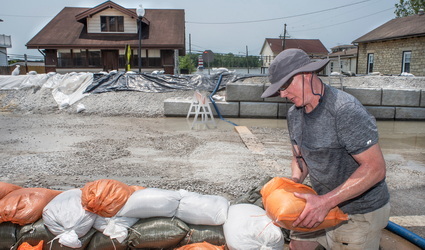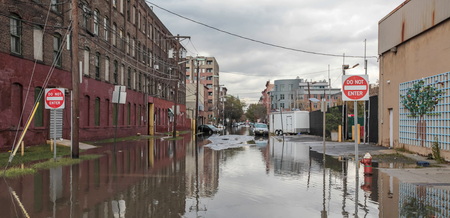
Hurricane Helene wreaked havoc along the east coast, causing widespread flooding and over $20 billion in damages to homes, businesses, and infrastructure. The storm underscored the critical need to reform the National Flood Insurance Program (NFIP), which is set to expire in December.
Hurricane Helene Damages
- The frequency of severe weather events continues to rise, yet many communities are underinsured or entirely without flood coverage.
- Without a robust, long-term NFIP, property owners face escalating risks from future storms, leaving both homeowners and commercial real estate properties vulnerable.
- The NFIP is the primary source of flood coverage in the U.S., relied upon by 4.7 million properties in high-risk areas. (Reuters, Oct.3)
- Moody’s Analytics estimates the storm caused $15 billion to $26 billion in property damage, as well as an additional $5 billion to $8 billion in lost economic output. (Washington Post, Sept. 29)
- Moody’s RMS Event Response is preparing a more precise estimate of the insured losses caused by Hurricane Helene that will be released in the coming weeks. (Fox Business, Sept. 30)
Roundtable Advocacy

- The Roundtable, along with nine industry organizations, wrote to Congress last week urging them to extend the National Flood Insurance Program (NFIP) before its Sept. 30 expiration. (Letter)
- As part of the CR package passed last week, the NFIP was extended until Dec. 20.
- Congress has enacted over 31 short-term extensions of the NFIP. The Roundtable has been a long-standing supporter of a long-term reauthorization of the NFIP with appropriate reforms.
- A long-term reform and reauthorization of the NFIP is essential for residential markets, overall natural catastrophe insurance market capacity, and the broader economy.
The Roundtable, along with its industry partners, continues to work constructively with policymakers and stakeholders to address commercial insurance gaps and rising costs. The Roundtable will continue advocating for targeted policy solutions that can help alleviate increased insurance costs for housing providers nationwide.



